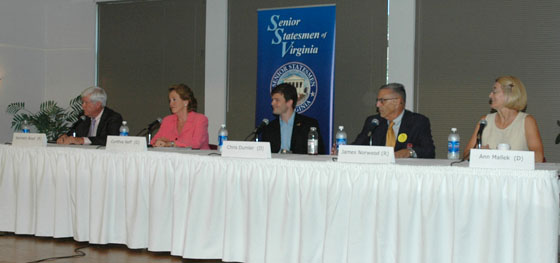Delegates David Toscano and Rob Bell provided their perspectives on the issues that came before the 2012 legislature. The delegates spoke at the Wednesday, April 11, 2012 meeting of the Senior Statesmen of Virginia. Invited Delegates Matt Fariss and Steve Landes were unable to attend. The meeting was held at the Charlottesville Senior Center. Following the presentation, questions were taken from the audience. The program was moderated by SSV Secretary Bill Davis.
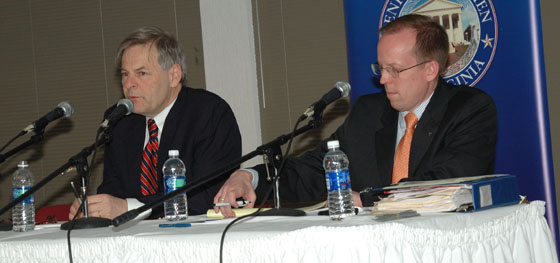
 Standard Podcast [ 1:01:39 ]
Standard Podcast [ 1:01:39 ]
 David Toscano (D) – 57th District: David Toscano is serving his third term in the Virginia General Assembly, representing the 57th District of the House of Delegates, where he serves on the Courts of Justice; Transportation; and Science & Technology committees. David also serves on the Disability Commission and has served on the special Joint Subcommittee to Study Land Use Tools in the Commonwealth and the Joint Committee to study Math, Science, and Engineering. He is also a member of the United Way Board and the Chamber of Commerce.
David Toscano (D) – 57th District: David Toscano is serving his third term in the Virginia General Assembly, representing the 57th District of the House of Delegates, where he serves on the Courts of Justice; Transportation; and Science & Technology committees. David also serves on the Disability Commission and has served on the special Joint Subcommittee to Study Land Use Tools in the Commonwealth and the Joint Committee to study Math, Science, and Engineering. He is also a member of the United Way Board and the Chamber of Commerce.
David, his wife Nancy A. Tramontin, and son Matthew live in Charlottesville. David is a practicing attorney and an active volunteer for many community-based organizations.
David is an attorney with Buck, Toscano & Tereskerz, Ltd., and specializes in family law, real estate transactions, and estate planning.
David’s priorities are education, energy, and the environment. He fights for education funding, against teacher pay freezes, and to protect VRS and retirement benefits. He pushes the cause of renewable energy, and stood against those who deny the reality of climate change. He opposes predatory lending in its various forms. He argues for multifaceted transportation programs that include roads, rail, and public transit. He opposes cuts to services for the poor and disabled, defends a woman’s right to choose, and advances reforms in foster care and adoption, so that all children will have the opportunity to live productive lives in family settings free from abuse and neglect.
The Virginia League of Conservation Voters has named David a “Legislative Hero” four times for his work on environmental issues.
David was born in Syracuse, New York, the oldest of five children. He received a bachelor’s degree from Colgate University, a Ph.D. from Boston College, and a law degree from the University of Virginia. He has taught politics and sociology at various colleges and universities, including Boston College, University of Maryland (European Division), PVCC, University of Virginia, and James Madison University. He recently taught for the University of Virginia as part of its 14-week Semester at Sea program.
David served on the Charlottesville City Council from 1990 to 2002 and as Mayor 1994-96. David is a resident of the City of Charlottesville, where he lives with his wife, Nancy A. Tramontin, and their son, Matthew.
 Robert Bell (R) – 58th District: An honors graduate of the University of Virginia and the University of Virginia Law School, Rob served as a state prosecutor for five years. He prosecuted over 2,400 cases, working with the police and crime victims to bring criminals to justice.
Robert Bell (R) – 58th District: An honors graduate of the University of Virginia and the University of Virginia Law School, Rob served as a state prosecutor for five years. He prosecuted over 2,400 cases, working with the police and crime victims to bring criminals to justice.
In the Virginia General Assembly, Rob has written laws that crack down on drunk driving. As a result, MADD (Virginia) named him the 2005 Outstanding Legislator. He is also interested in school safety. In recent years, he has written laws to ban criminal sex offenders from school property during school hours and to require additional background checks on school personnel. In 2008, Rob helped overhaul Virginia’s mental health commitment laws in light of the tragedy at Virginia Tech. And, in 2009, Rob received the Act, Honor, Hope award from the Virginia Sexual and Domestic Violence Action Alliance to recognize his work in the Virginia General Assembly.
An Eagle Scout, Rob was an active volunteer with the Boy Scouts and with the public schools prior to his election in 2001. Rob’s wife, Jessica, is a schoolteacher. She is currently staying home to raise their children, Robbie and Evie. The Bells live in Albemarle County and are members of Aldersgate United Methodist Church.
Rob understands that in tough economic times everyone – business, communities, government – needs to pitch in to create and protect Virginia jobs. That’s why Rob has fought to preserve and promote Virginia’s #1 business-friendly ranking. This helps Virginia’s small businesses to expand and encourages new companies to move here.
In response to the 2007 Virginia Tech shootings, Rob was chosen to lead a special Virginia House of Delegates subcommittee charged with reforming Virginia’s mental health commitment laws. The subcommittee’s goals were to ensure that a similar tragedy would not happen again and to protect the ability of Virginians to voluntarily seek care for themselves. In 2008, as a result of the subcommittee’s work, Virginia saw the most sweeping reforms of mental health commitment laws in 30 years.
Rob and Jessica’s son Robbie attends public school. Jessica is a high school English teacher who is currently taking time off to raise Robbie and Evie. As delegate, Rob regularly visits our schools to talk with students. He has taught more than 1,000 students about civics and how laws are made. Rob has also sponsored local students as pages in the Virginia General Assembly and others have served as interns in his legislative office.
Rob is a champion for our communities against crime. He has led an all-out assault against drunk driving and has fought to protect our families from sex offenders. Rob has served on the Virginia Crime Commission since 2003 and is currently chairman.
 Matthew Fariss (R) – 59th District: Matt Fariss is a seventh generation native of Campbell County with a desire for future generations to continue to reside in the region. His wife, Crystal, and children, Hunter, Bobby, and Harrison are the reason Matt entered this campaign. He hopes that they can continue to enjoy the same rights and freedoms that he has been blessed with, and, as delegate, he will fight against liberal policies that will put those liberties in jeopardy. Despite his various successes, he is first and foremost a Christian family man committed to serving his family and community.
Matthew Fariss (R) – 59th District: Matt Fariss is a seventh generation native of Campbell County with a desire for future generations to continue to reside in the region. His wife, Crystal, and children, Hunter, Bobby, and Harrison are the reason Matt entered this campaign. He hopes that they can continue to enjoy the same rights and freedoms that he has been blessed with, and, as delegate, he will fight against liberal policies that will put those liberties in jeopardy. Despite his various successes, he is first and foremost a Christian family man committed to serving his family and community.
Matt was blessed to grow up in rural Virginia. However, as a youth he may have taken some of those blessings for granted and was subsequently “fired” by his father around twenty years old. Following that incident, Matt employed the values of hard work that he’d learned since he was a child. He began purchasing cattle and growing his business operation. Through the years, Matt has operated a country store, managed large amounts of real estate, raised cattle, managed farms, and operated numerous businesses. In addition to other projects, he is currently co-owner and Vice President of the Lynchburg Livestock Market, the largest livestock market center in Virginia. Matt has mastered numerous business ventures, and always has multiple projects going on at one time. As delegate, he will apply that business savvy towards serving his constituents in Richmond.
Having never run for or held office before, Matt is ready to take on the new challenge of representing the citizens of the 59th District. Seeking political office is not something that Matt ever planned or envisioned for himself. As a result, Matt has no favors to return in Richmond or in Washington, and his work will be focused solely on serving his constituents. His service comes because he understands that times like these require sacrifices and commitments of those capable of leading. Matt knows that Richmond is in need of a common sense conservative approach, and, as a businessman, he is capable of bringing that much needed attitude to the House of Delegates. Central Virginia needs a man with roots in the district who understands how to create jobs and make common sense decision. As delegate, Matt will never become an ivory tower leader; instead, he will remain committed to being a citizen-legislator fighting for the economy, values, and future of rural Virginia.
 Steven Landes (R) – 25th District: Delegate Landes is serving his eighth term in the House. He is a Member of the House Education, Appropriations, Rules, and Privileges and Elections Committees.
Steven Landes (R) – 25th District: Delegate Landes is serving his eighth term in the House. He is a Member of the House Education, Appropriations, Rules, and Privileges and Elections Committees.
Steve is Vice Chairman of the House Education Committee. He was recently appointed Chairman of the Economic Development, Agriculture, and Natural Resources Subcommittee of House Appropriations as well as a Budget Conferee. Steve is also Past President of the Weyers Cave Ruritan Club.
Steve serves on the Major Employment and Investment (MEI) Projects Approval Commission. He was recently appointed to serve as a member of the Governor’s Advisory Council on Revenue Estimates.
Steve is also is the Vice Chairman of the Board of Trustees of the Center for Rural Virginia. Steve serves on the Board of Trustees of the Frontier Culture Museum of Virginia as well as the Board of Visitors of the Virginia School for the Deaf and the Blind.
From 1988 to 1992, Steve served as legislative assistant to his predecessor, former Delegate A.R. “Pete” Giesen, Jr., and from 1993 to 1995 served as Congressman Bob Goodlatte’s district director and district representative.
Steve is the Community Relations Coordinator for DuPont Community Credit Union, which is headquartered in Waynesboro, Virginia. He served as Executive Director of NewBiz Virginia, the Shenandoah Valley’s small business incubator, for five years. Steve was a life insurance agent and registered representative with Massachusetts Mutual Life Insurance Company. Steve also worked a Davis & Davis Marketing, Inc., a Staunton-based marketing and advertising firm, as a media buyer and then as an account executive.
Steve is a graduate of Buffalo Gap High School in Augusta County, and he received a Bachelor of Science degree from Virginia Commonwealth University. He and his wife Angela, who is an Assistant Commonwealth’s Attorney for Augusta County, live in Weyers Cave with their son Roth. Steve and Angela are both members and elders of Mt. Horeb Presbyterian Church.
Program Summary
Delegates Rob Bell, Matthew Farris, Steve Landes, and David Toscano were invited to report on the 2012 legislative session. Delegates Farris and Landes had planned to attend the meeting, but a telephone call from the office of Delegate Farris was received several hours prior to the meeting saying he was detained and would be unable to attend. Delegate Landes sent a last-minute note that he was tied up with his responsibilities as a Budget Conferee in the Legislature–but unfortunately, we didn’t see the message in time! Delegate Landes has attended past SSV events and we hope the legislative work next year will conclude early enough to allow all our Charlottesville and Albemarle County delegates to join in the legislative session report and discussion.
Delegate Toscano addressed the following topics in his opening remarks: legislative actions taken on guns; drug testing of welfare recipients; tax credits; intrusive ultrasound bill; and the budget (and at the time of the SSV meeting, the budget was in Conference Committee to reconcile differences in the house and senate versions of the budget—diversion of sales tax revenues from education, public safety, etc., to transportation; cuts to Medicaid and Medicare; increases for higher education; funding for the cancer center; a two-year reprieve for the Charlottesville train; and no money to be transferred from Charlottesville schools to Albemarle schools).
Delegate Bell began his remarks by stating that apparently a budget compromise has been reached but that he has not seen it. He then commented on the following legislation: funding for a fifth area judge is in the budget; budget revenues are rebounding but are still substantially below where they were at the height, and there are increased pressures on expenditures, e.g., Medicaid and counter-cyclical pressures; a yearlong effort culminating in legislation to expand the ability of nurse practitioners to do health care and thereby increasing the access to health care; life in prison for persons who rape children age 12 and under; improved probation procedures for some other offenders; child abuse reporting; ignition interlock devices for drunk drivers; and Virginia Retirement System underfunding—$19.9 billion short!
 Terry Cooper, owner of Terry Cooper Political Research, addressed many of the hot-button issues dominating politics today. Mr. Cooper does political research, principally opposition research for Republican candidates. He is a member of the Senior Statesmen of Virginia. Mr. Cooper spoke at the Wednesday, June 13, 2012 meeting of the Senior Statesmen of Virginia. The meeting was held at the Charlottesville Senior Center. Following the presentation, questions were taken from the audience. The program was moderated by SSV Vice President Bob McGrath.
Terry Cooper, owner of Terry Cooper Political Research, addressed many of the hot-button issues dominating politics today. Mr. Cooper does political research, principally opposition research for Republican candidates. He is a member of the Senior Statesmen of Virginia. Mr. Cooper spoke at the Wednesday, June 13, 2012 meeting of the Senior Statesmen of Virginia. The meeting was held at the Charlottesville Senior Center. Following the presentation, questions were taken from the audience. The program was moderated by SSV Vice President Bob McGrath.

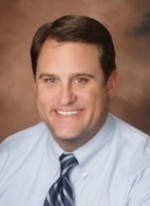

 David Toscano (D) – 57th District: David Toscano is serving his third term in the Virginia General Assembly, representing the 57th District of the House of Delegates, where he serves on the Courts of Justice; Transportation; and Science & Technology committees. David also serves on the Disability Commission and has served on the special Joint Subcommittee to Study Land Use Tools in the Commonwealth and the Joint Committee to study Math, Science, and Engineering. He is also a member of the United Way Board and the Chamber of Commerce.
David Toscano (D) – 57th District: David Toscano is serving his third term in the Virginia General Assembly, representing the 57th District of the House of Delegates, where he serves on the Courts of Justice; Transportation; and Science & Technology committees. David also serves on the Disability Commission and has served on the special Joint Subcommittee to Study Land Use Tools in the Commonwealth and the Joint Committee to study Math, Science, and Engineering. He is also a member of the United Way Board and the Chamber of Commerce. Robert Bell (R) – 58th District: An honors graduate of the University of Virginia and the University of Virginia Law School, Rob served as a state prosecutor for five years. He prosecuted over 2,400 cases, working with the police and crime victims to bring criminals to justice.
Robert Bell (R) – 58th District: An honors graduate of the University of Virginia and the University of Virginia Law School, Rob served as a state prosecutor for five years. He prosecuted over 2,400 cases, working with the police and crime victims to bring criminals to justice. Matthew Fariss (R) – 59th District: Matt Fariss is a seventh generation native of Campbell County with a desire for future generations to continue to reside in the region. His wife, Crystal, and children, Hunter, Bobby, and Harrison are the reason Matt entered this campaign. He hopes that they can continue to enjoy the same rights and freedoms that he has been blessed with, and, as delegate, he will fight against liberal policies that will put those liberties in jeopardy. Despite his various successes, he is first and foremost a Christian family man committed to serving his family and community.
Matthew Fariss (R) – 59th District: Matt Fariss is a seventh generation native of Campbell County with a desire for future generations to continue to reside in the region. His wife, Crystal, and children, Hunter, Bobby, and Harrison are the reason Matt entered this campaign. He hopes that they can continue to enjoy the same rights and freedoms that he has been blessed with, and, as delegate, he will fight against liberal policies that will put those liberties in jeopardy. Despite his various successes, he is first and foremost a Christian family man committed to serving his family and community. Steven Landes (R) – 25th District: Delegate Landes is serving his eighth term in the House. He is a Member of the House Education, Appropriations, Rules, and Privileges and Elections Committees.
Steven Landes (R) – 25th District: Delegate Landes is serving his eighth term in the House. He is a Member of the House Education, Appropriations, Rules, and Privileges and Elections Committees. What is the proper role of intercollegiate athletics with various institutional programs such as teaching and learning? Where does the sports program fit in with other programs? Craig Littlepage, UVa Athletics Director, responded to these questions and more at this month’s meeting of the Senior Statesmen of Virginia. The program was moderated by SSV board member Charlie Smith.
What is the proper role of intercollegiate athletics with various institutional programs such as teaching and learning? Where does the sports program fit in with other programs? Craig Littlepage, UVa Athletics Director, responded to these questions and more at this month’s meeting of the Senior Statesmen of Virginia. The program was moderated by SSV board member Charlie Smith.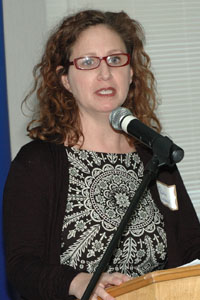 Dahlia Lithwick, a renowned journalist and expert on the Supreme Court, addressed questions such as, “What health reform cases will be coming up in this important election year?” and “What other major cases are in the pipeline?”. Listen to this fascinating talk by clicking below.
Dahlia Lithwick, a renowned journalist and expert on the Supreme Court, addressed questions such as, “What health reform cases will be coming up in this important election year?” and “What other major cases are in the pipeline?”. Listen to this fascinating talk by clicking below.
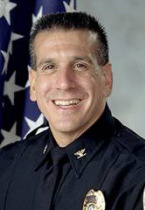 Timothy J. Longo, Sr., Chief of Police, City of Charlottesville, is a 25-year veteran of law enforcement and is nationally-recognized in the area of police ethics and professional standards. He holds a law degree from the University of Baltimore and was admitted to the Maryland Bar in 1993. From 1981-2000, Longo served on the Baltimore police force, where he commanded several divisions and retired as Colonel in charge of Technical Services. Since 2001 he has served as Chief of Police for the City of Charlottesville, Virginia.
Timothy J. Longo, Sr., Chief of Police, City of Charlottesville, is a 25-year veteran of law enforcement and is nationally-recognized in the area of police ethics and professional standards. He holds a law degree from the University of Baltimore and was admitted to the Maryland Bar in 1993. From 1981-2000, Longo served on the Baltimore police force, where he commanded several divisions and retired as Colonel in charge of Technical Services. Since 2001 he has served as Chief of Police for the City of Charlottesville, Virginia.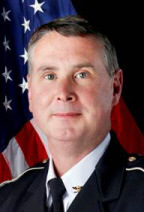
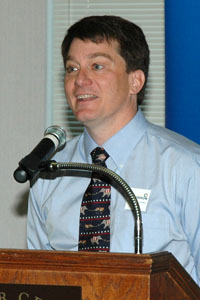 Brian Wheeler spoke at the November 9, 2011 meeting of the Senior Statesmen of Virginia. The meeting was held at the
Brian Wheeler spoke at the November 9, 2011 meeting of the Senior Statesmen of Virginia. The meeting was held at the  Sara Okos is the Policy Director at the
Sara Okos is the Policy Director at the 